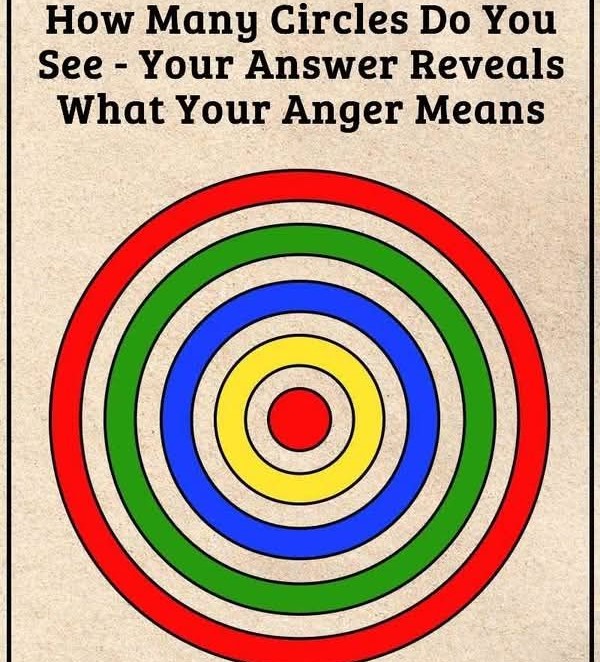The internet is no stranger to viral visual puzzles and personality tests. From “what animal do you see first?” to “how many colors do you perceive?”, these quirky challenges promise to reveal deep truths about who we are. One such meme circulating widely on social media is the colorful concentric circle illusion, boldly claiming: “The number of circles you see reveals whether you’re a narcissist.” But is there any scientific merit to this claim, or is it just clickbait cleverly wrapped in color? Let’s dive into the psychology of visual illusions, what they can (and can’t) say about your personality, and why we’re so fascinated by them.
Main Body
1. The Origin of the Meme
The image in question usually features a series of overlapping or concentric circles in vibrant primary colors. Viewers are asked how many they see — a question that immediately engages the brain’s visual processing system. Some versions go further to say your answer determines if you’re creative, honest, or even narcissistic. But these bold personality assessments are typically not rooted in psychological research. They’re made for fun — and for shares.
2. Optical Illusions and Perception
Optical illusions like these challenge the brain to interpret visual data that may be ambiguous or misleading. Our brains don’t passively record images — they actively construct them. Factors like contrast, perspective, and prior experience influence what we “see”. So if you counted five circles and your friend counted seven, that doesn’t mean one of you is self-obsessed — it just means you processed the image differently.
3. Narcissism: A Complex Trait
Narcissism, in psychological terms, refers to traits such as inflated self-importance, a constant need for admiration, and a lack of empathy. It’s typically measured using structured tools like the Narcissistic Personality Inventory (NPI), not based on simple image tests. Reducing something as complex as narcissism to a circle count is not only inaccurate, but also trivializes real mental health conditions.
4. The Appeal of Pop Psychology Memes
Why are we drawn to these tests, even if we know they’re unscientific? They provide a quick hit of self-reflection without much effort. They also serve as conversation starters and social tools. Sharing your result online invites others to engage, compare, and comment — all key ingredients for viral success. They tap into our natural curiosity about ourselves and how we’re perceived.
5. What These Tests Can Reveal
While they don’t diagnose or measure narcissism, visual tests can reveal how differently people perceive the same image. This diversity in perception can reflect our cognitive flexibility, attentional focus, or even how tired we are when looking at the image. Used with this mindset, these illusions are more about how we think than who we are.
In the end, the number of circles you see doesn’t make you a narcissist — but your fascination with such tests might make you human. We all crave understanding and connection, and quick quizzes offer a playful, low-stakes way to explore identity. So next time you see one of these viral posts, enjoy it for what it is: a modern-day Rorschach test designed for entertainment, not diagnosis. And remember — sometimes a circle is just a circle.
